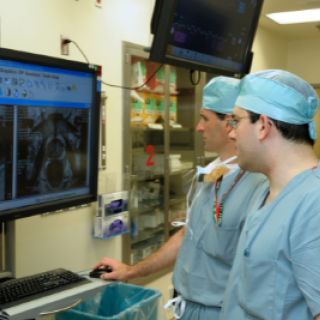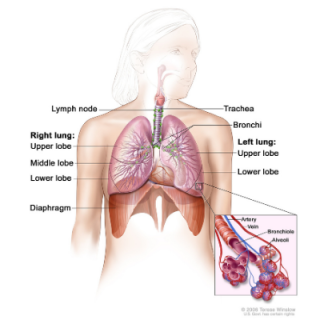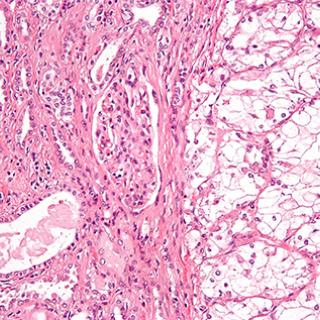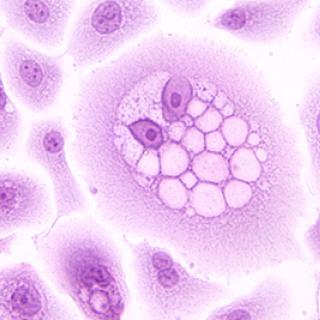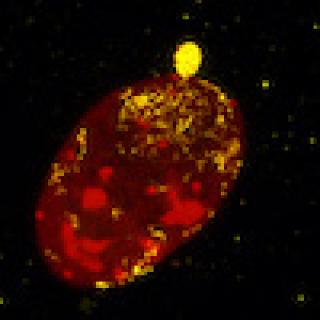Clinical Trials
Personalized approach to prostate cancer diagnosis could mean less invasive biopsies
Systematic and MRI-guided biopsies can each find cancers that the other technique can miss — but not everyone needs both. According to a new analysis, magnetic resonance imaging can be used to determine which biopsy approach is appropriate for an individual.
Read MoreStem cell transplant after CAR T-cell therapy effective for young leukemia patients
In a clinical trial, CCR physician-scientists found that long-term survival for young patients with B-cell acute lymphoblastic leukemia was significantly better for those who received CD19-CAR T-cell therapy followed by a stem cell transplant. As a result of these findings, use of stem cell transplant is now recommended following CAR T-cell therapy.
Read MoreFDA approves BCMA-targeted CAR T-cell therapy for multiple myeloma
The Food and Drug Administration approved idecabtagene vicleucel (Abecma) for people with multiple myeloma that has not responded to or has returned after at least four different prior cancer treatments. The approval is based, in part, on earlier clinical work led by James N. Kochenderfer, M.D., Senior Investigator in the Surgery Branch.
Read MoreBrigitte Widemann named a Top Ten Clinical Research Achievement Awardee
Brigitte C. Widemann, M.D., Chief of the Pediatric Oncology Branch, has been named a Top Ten Clinical Research Achievement Awardee by the Clinical Research Forum, and she was awarded a Distinguished Clinical Research Achievement Award for her study “Selumetinib in Children with Inoperable Plexiform Neurofibromas.”
Read MoreFDA grants orphan drug designation to PRGN-2012 for recurrent respiratory papillomatosis
The Food and Drug Administration has granted orphan drug designation to PRGN-2012 immunotherapy for use in patients with recurrent respiratory papillomatosis.
Read MoreCombination therapy in patients with advanced kidney cancer found to be highly effective
A phase III international clinical trial that tested the combination therapy of nivolumab and cabozantinib in patients with advanced, untreated renal-cell carcinoma yielded promising results.
Read MoreClinical trial investigates vaccine to treat recurrent respiratory papillomatosis after surgery
Scott M. Norberg, D.O., Assistant Research Physician in the Genitourinary Malignancies Branch, is leading a study of PRGN-2012, an experimental therapeutic vaccine for adults with recurrent respiratory papillomatosis (RRP). RRP is a rare disorder caused by human papillomavirus.
Read MoreNew trial evaluates immunotherapy combinations in adults with advanced small bowel and colorectal cancers
Julius Strauss, M.D., Assistant Research Physician in the Laboratory of Tumor Immunology and Biology, is leading a clinical trial evaluating a combination of immunotherapy drugs to see if they can shrink advanced tumors of the small bowel, colon and rectum.
Read MoreClinical trial evaluates combination therapy for men with metastatic prostate cancer
Ravi A. Madan, M.D., Senior Clinician in the Genitourinary Malignancies Branch, is leading a study of an experimental treatment for men with two types of prostate cancer: one type that responds to hormone therapy and one that doesn’t.
Read MoreClinical trial studies immunotherapy combination for recurrent thymoma and thymic carcinoma
Thymic epithelial tumors (TETs) are rare cancers that originate from the cells of the thymus, a small organ that sits in the chest between the lungs and above the heart. Arun Rajan, M.D., Senior Clinician in the Thoracic and GI Malignancies Branch, is leading a clinical trial of a therapy for thymoma and thymic carcinoma that has returned after chemotherapy and cannot be treated with surgery.
Read More